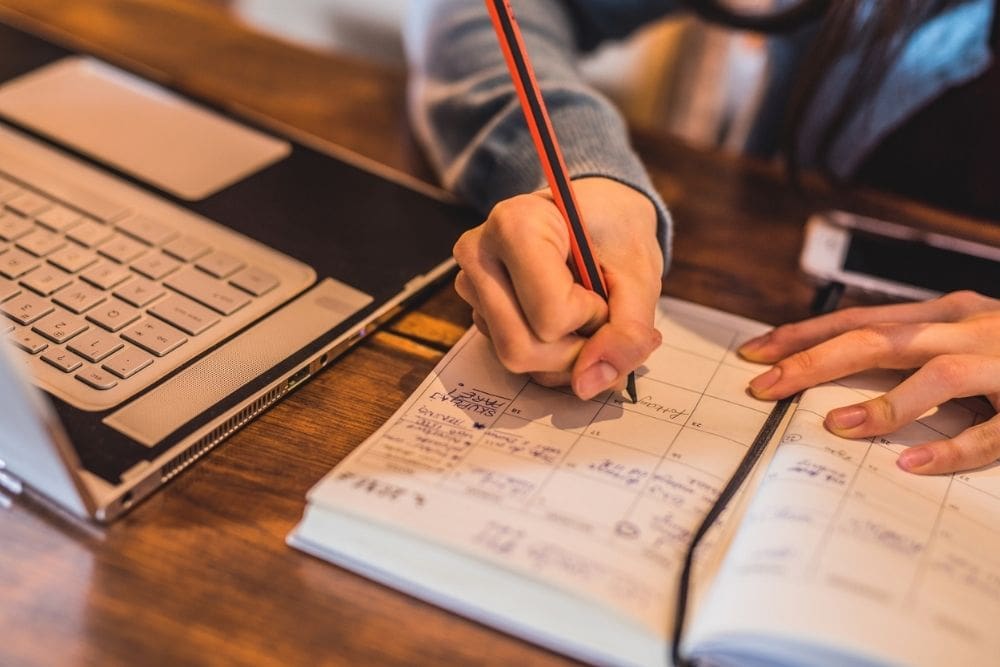When you’re rebuilding your life in recovery, structure can be one of your greatest allies. After the chaos of addiction, creating a daily routine can feel grounding. It gives you direction, stability, and a sense of purpose, helping you stay focused on what truly matters: your healing.
Why Routine Is So Important in Recovery
In early recovery, every day can bring new emotions, triggers, and temptations. Without a plan in place, it’s easy to drift back into old habits or feel lost about what to do next. A consistent routine helps you avoid those pitfalls.
A healthy daily structure provides:
- Predictability: You know what to expect each day, which reduces stress and uncertainty.
- Accountability: When you schedule time for meetings, meals, or exercise, you’re setting goals you can stick to.
- Balance: You learn to make time for work, rest, self-care, and connection, which are important elements for long-term recovery.
Most importantly, a routine helps retrain your brain. Addiction often rewires your reward system, making it hard to find satisfaction in everyday activities. Sticking to a schedule helps your mind and body adjust to a healthier rhythm, where joy comes from stability instead of chaos.
Types of Routines That Support Sobriety
There isn’t one perfect schedule that works for everyone, but building a routine that fits your needs and lifestyle can make all the difference. Here are a few areas to focus on:
- Morning Routine to Start Your Day with Purpose
How you begin your day sets the tone for everything that follows. Instead of rushing or scrolling through your phone, try creating a calm, focused start to the morning.
Your morning routine might include:
- Making your bed and tidying your space
- Practicing mindfulness or meditation
- Writing in a gratitude journal
- Eating a healthy breakfast
- Attending a morning support group meeting, such as AA or NA
Even small acts of consistency—like getting dressed, brushing your teeth, and stepping outside for fresh air—remind you that you’re capable of taking care of yourself and making positive choices.
- Work, School, or Volunteer Routine to Fill Your Day with Purposeful Activity
Addiction often leaves behind long stretches of unstructured time—something that can feel uncomfortable in early recovery. Having a daily purpose, whether it’s work, school, or volunteering, keeps your mind engaged and reduces boredom, which can be a major relapse trigger.
If you’re not yet back to full-time employment, volunteering at a local shelter, helping at your recovery center, or taking an online class can provide structure while giving you a sense of meaning and contribution.
- Healthy Lifestyle Routine to Care for Your Body and Mind
Physical health and emotional well-being are closely connected. When you care for your body, you’re also supporting your mental and emotional recovery.
Include time each day to:
- Exercise: Whether it’s a walk, yoga, or lifting weights, movement releases endorphins and reduces stress.
- Eat balanced meals: Regular, nourishing meals help stabilize your mood and energy levels.
- Sleep consistently: Try to go to bed and wake up at the same time each day to restore your natural sleep rhythm.
Over time, these habits create a sense of balance that makes it easier to handle cravings or stressful situations.
- Social and Emotional Routine to Help You Stay Connected
Isolation can be dangerous in recovery. Making time to connect with others reminds you that you’re not alone and helps strengthen your support network.
You might include in your weekly routine:
- Attending recovery meetings or therapy sessions
- Reaching out to a sponsor or supportive friend
- Scheduling a lunch or activity with loved ones
- Spending time in community or faith-based activities
These interactions not only keep you accountable but also rebuild trust, strengthen relationships, and remind you of the progress you’re making.
- Evening Routine to Help You Reflect and Recharge
Evenings are a great time to slow down and reflect. The quiet hours before bed can help you process your day and prepare mentally for tomorrow.
Consider winding down with activities like:
- Journaling about your progress or challenges
- Reading an inspirational book
- Practicing deep breathing or relaxation exercises
- Expressing gratitude for small victories
Reflecting each night helps you see how far you’ve come and reminds you that every day you stay sober is a success worth celebrating.
The Benefits of Sticking to a Routine
You might not always feel like following your schedule—and that’s okay. What matters is consistency over perfection. With time, you’ll start to notice the benefits:
- Reduced stress. Routine provides structure that makes life feel more manageable.
- Improved focus. Knowing what’s next helps you stay present instead of worrying about what’s out of your control.
- Stronger self-discipline. Following through on daily goals builds confidence and self-respect.
- Better emotional balance. Consistency helps regulate mood and energy levels, reducing anxiety and depression symptoms.
- Greater sense of purpose. Each day has meaning when it’s filled with intentional actions.
Finding Balance in New Mexico
At Las Cruces Recovery Center in New Mexico, we understand how important structure is in recovery. Our programs are designed to help you establish healthy habits, rebuild confidence, and create a daily rhythm that supports long-term sobriety. Whether you’re just beginning your recovery journey or working to strengthen your progress, developing a routine can help you stay grounded and focused on your goals.



